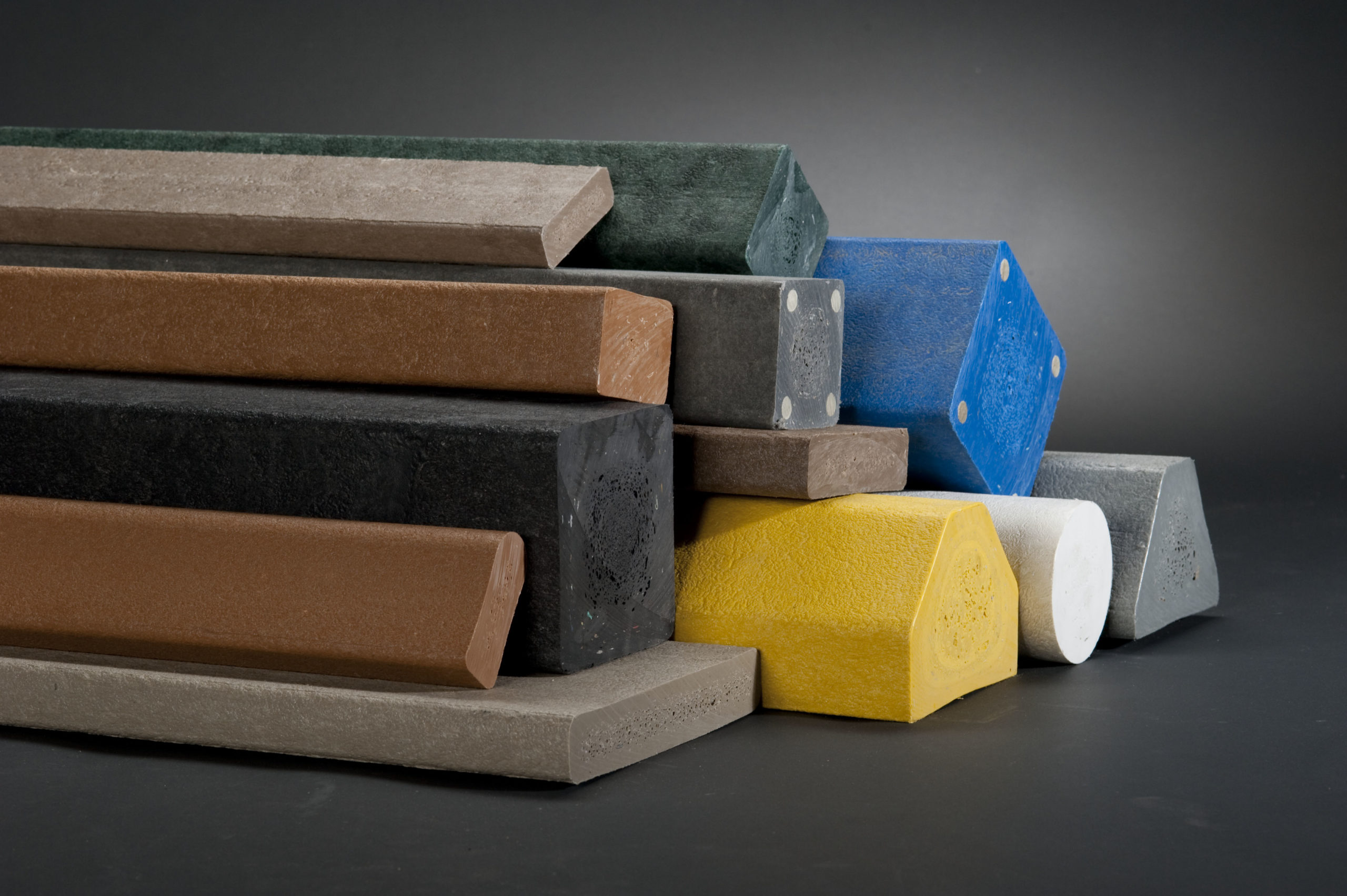Exploring the Uses and Advantages of Recycled Composites in Modern Industries
In today's swiftly advancing industrial landscape, the utilization of recycled compounds has amassed enhancing focus for its prospective to redefine conventional manufacturing techniques. The combinations of recycled materials with advanced composite innovations provides a promising method for enhancing sustainability, strength, and cost-efficiency across different sectors. As markets seek ingenious solutions to address ecological issues and improve operational efficiencies, the consolidation of recycled compounds becomes a compelling alternative. This change towards sustainable techniques not just aligns with worldwide preservation initiatives but likewise offers a myriad of benefits that hold the secret to shaping the future of contemporary manufacturing approaches.
Environmental Benefits of Recycled Composites
The usage of recycled composites in contemporary markets supplies substantial ecological advantages, contributing to the reduction of waste and the conservation of natural resources. By integrating recycled compounds right into manufacturing procedures, industries can reduce their reliance on virgin materials, consequently decreasing the quantity of waste created and the power needed for removal and production. This change in the direction of using recycled composites aids in diverting materials from garbage dumps, relieving the worry on waste management systems, and lowering greenhouse gas discharges linked with standard manufacturing techniques.
Moreover, the use of recycled composites advertises the preservation of all-natural resources such as timber, minerals, and water, which are frequently depleted through the extraction and processing of raw materials (composites). By expanding the life expectancy of materials via recycling, markets can help preserve ecosystems and biodiversity by lowering the demand for brand-new resources. Generally, the adoption of recycled composites in modern markets plays an essential function in advertising sustainability and alleviating the environmental influence of manufacturing processes
Boosted Resilience in Product Manufacturing
With a focus on durability and effectiveness, integrating recycled compounds right into product manufacturing procedures boosts longevity and sustainability. By utilizing recycled compounds, makers can produce products that are not only solid yet also immune to put on and tear, making them ideal for lasting use in numerous markets. The mix of various products in recycled composites can commonly result in improved strength and toughness contrasted to conventional materials, giving an affordable remedy for generating long-lasting goods.
One of the key advantages of using recycled composites in product production is the capacity to tailor the product buildings to fulfill certain toughness demands. By readjusting the make-up and production strategies, suppliers can personalize the recycled composites to withstand extreme environmental problems, hefty lots, or frequent usage without jeopardizing on efficiency. This flexibility in style and manufacturing enables for the development of very long lasting products that preserve their integrity gradually, decreasing the requirement for regular replacements and eventually adding to a much more sustainable manufacturing process.
Cost-Effectiveness and Economic Advantages
Incorporating recycled compounds into item production not only improves sturdiness and sustainability however likewise supplies significant cost-effectiveness and economic advantages. Using recycled compounds can bring about reduced material expenses as recycled products are often cheaper than virgin products. In addition, recycling composite materials can reduce waste disposal costs and lower the need for land fill room, contributing to general cost financial savings for industries.

Innovation and Layout Adaptability With Recycled Composites
Utilizing recycled composites in modern-day sectors supplies unequaled opportunities for development and style adaptability. By incorporating recycled products into composite production procedures, companies can press the boundaries of typical style restraints and explore brand-new possibilities. The convenience of recycled composites permits the creation of complex shapes and frameworks that may not be attainable with traditional materials.
Among the crucial benefits of recycled composites is their capacity to be formed right into composites different forms, providing designers the liberty to experiment with unique shapes and sizes. composites. This versatility opens up a world of imaginative chances, enabling the growth of light-weight yet resilient products that meet the specific demands of various sectors
In addition, the usage of recycled composites advertises lasting techniques and sustains the circular economy by lowering waste and minimizing the environmental impact of making procedures. This concentrate on eco-friendly style services lines up with the growing fad in the direction of sustainability in modern sectors, making recycled composites an important resource for forward-thinking and ingenious firms.
Applications Across Various Industries
Recycled composites find diverse and impactful applications across a large array of sectors due to their unique residential properties and sustainability advantages. The aerospace sector benefits from recycled composites in the production of aircraft parts, where the products' strength-to-weight proportion is critical for making certain safety and performance. browse around this web-site The convenience and sustainability of recycled composites make them beneficial across different sectors, driving advancement and ecological stewardship.
Verdict
To conclude, the use of recycled composites in modern sectors offers significant ecological benefits, improved sturdiness in item production, cost-effectiveness, and financial benefits. The use of recycled composites allows for technology and layout versatility across different industries. Generally, the fostering of recycled composites provides a sensible and lasting solution for meeting the requirements of the sector while also minimizing ecological impact.

One of the crucial benefits of making use of recycled composites in product manufacturing is the capacity to customize the material properties to fulfill particular toughness demands. Making use of recycled composites can lead to decreased product expenses as recycled products are usually much less expensive than virgin materials. The aerospace industry advantages from recycled composites in the production of aircraft parts, where the materials' strength-to-weight ratio is important for guaranteeing why not find out more security and performance.